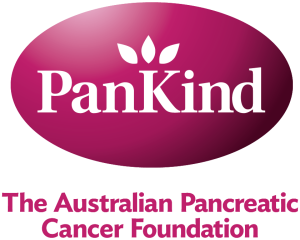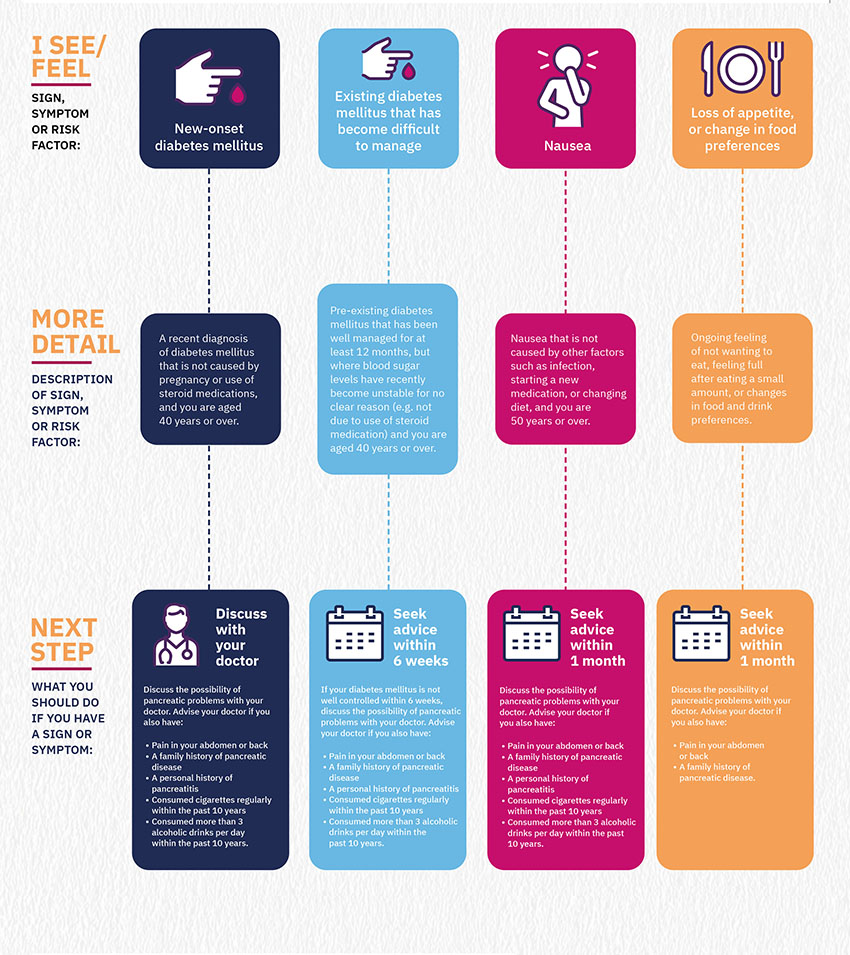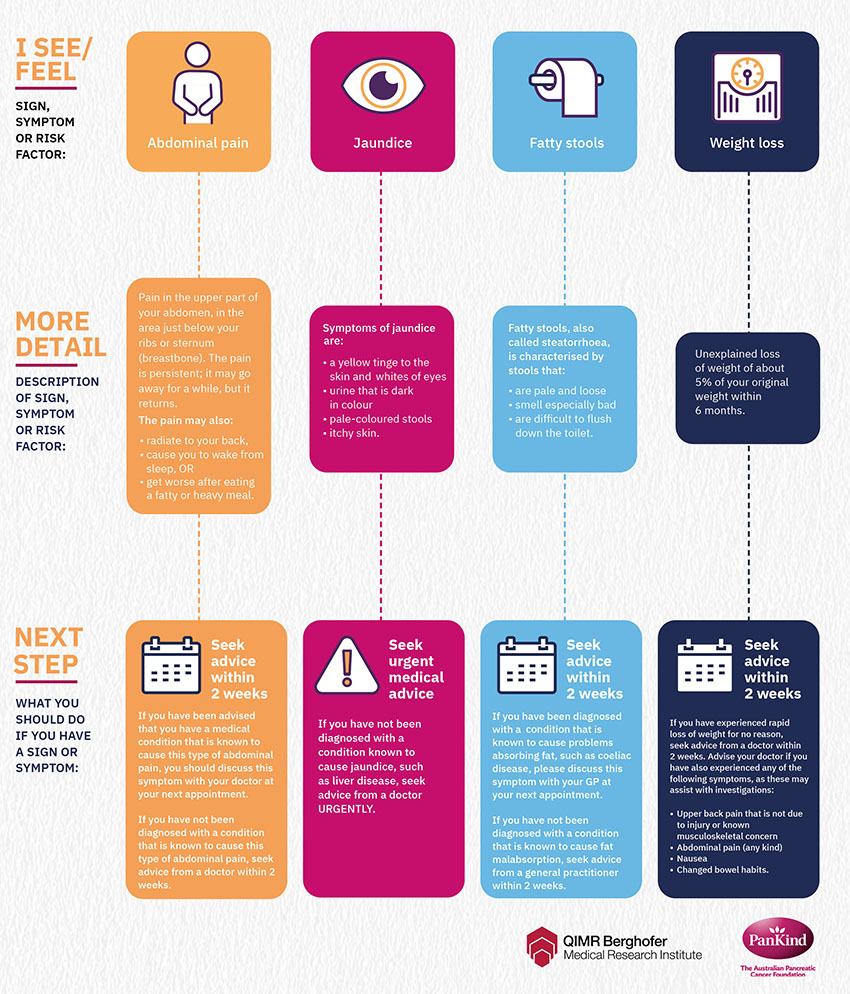Signs and Symptoms

Early-stage pancreatic cancer rarely causes signs or symptoms, which can make it hard to diagnose. Symptoms often only appear once the cancer is large enough to affect nearby organs or has spread.
The symptoms listed below do not necessarily mean that you have cancer and can be caused by other, less serious conditions.
If you are persistently experiencing any or several of the following symptoms, please speak to your doctor. You can download and print out a version of the Self-Assessment Guide below to take with you. If pancreatic cancer is found early, it is more treatable.
Self-Assessment Guide
Signs and symptoms of pancreatic cancer include:
- Abdominal and mid-back pain
- Unexplained weight loss
- Yellow skin or eyes
- Change in stool
- New-onset diabetes
- Digestive problems
- Loss of appetite
Pancreatic neuroendocrine tumours (PNETs) produce excess hormones; they can also have symptoms such as:
- Too much sugar in the blood (hyperglycaemia)
- A drop in blood sugar (hypoglycaemia)
- Blurred vision
- Excessive thirst
- Increased urination
Pancreatic cancer symptoms can also include digestive problems, such as:
- Nausea and/or vomiting
- Diarrhoea, constipation or other changes in your bowel habit
- Pain at the top of your abdomen and back. This may worsen when you are lying down or eating, but you feel better if you lean forward
- Indigestion and bloating
While these symptoms can be common and may not indicate pancreatic cancer, it’s still a good idea to get checked out by a doctor.
You may already have a condition such as IBS (irritable bowel syndrome), which means you experience similar issues. But if these symptoms change, worsen, or don’t feel right, seek professional advice immediately. Remember that pancreatic cancer symptoms can present in many different ways and vary between patients. If in doubt, get checked out.
Early detection and screening tests

Early detection
Currently, there is no established way to test or find pancreatic cancer early. There are several reasons for this, including:
- The location of the pancreas, deep inside the abdomen makes it difficult for a doctor to feel or see a tumour during a physical exam.
- Symptoms of pancreatic cancer are often vague and develop over time.
- There are no proven biomarkers (molecular signals) that can be tested to indicate early-stage pancreatic cancer.
PanKind is working with the research community to understand pancreatic cancer biomarkers better and develop tests for early diagnosis.
Screening
Screening tests help detect cancer in people who do not have any symptoms. There are useful screening tests for certain types of cancer, such as breast cancer and bowel cancer.
Currently, it is not possible to test all the population for pancreatic cancer, however, there are some programs in Australia screening people at high risk of pancreatic cancer. Screening cannot stop you from getting cancer, but it can help to detect it early when it is much easier to treat or cure.
If you are concerned you may be at a high risk of pancreatic cancer, please speak to your doctor.
To learn more about familial pancreatic cancer or to register for a screening trial in Australia, please visit the Australian Pancreatic Cancer Genome Initiative or contact the screening trial coordinator, Tanya Dwarte t.dwarte@garvan.org.au.
Always consult your doctor or health professional about any health-related matters. PanKind does not provide medical or personal advice and is intended for general informational purposes only. Read our full Terms of Use.
Thank you to the clinicians, researchers, patients, and carers who have helped us create and review our website information and support resources, we could not have done it without you.
Discover the rest of the PanKind website for more information on pancreatic cancer for patients and their carers.








